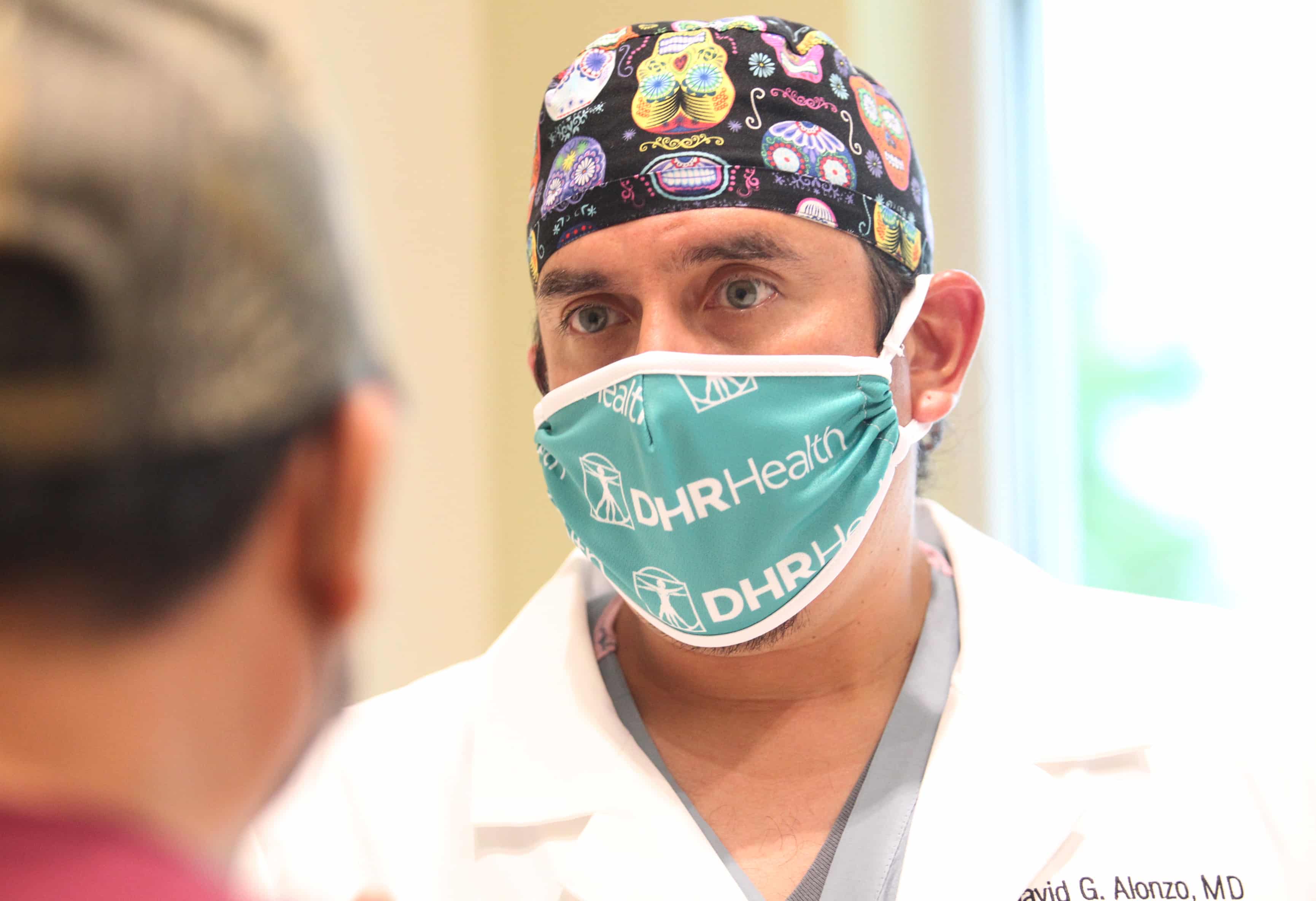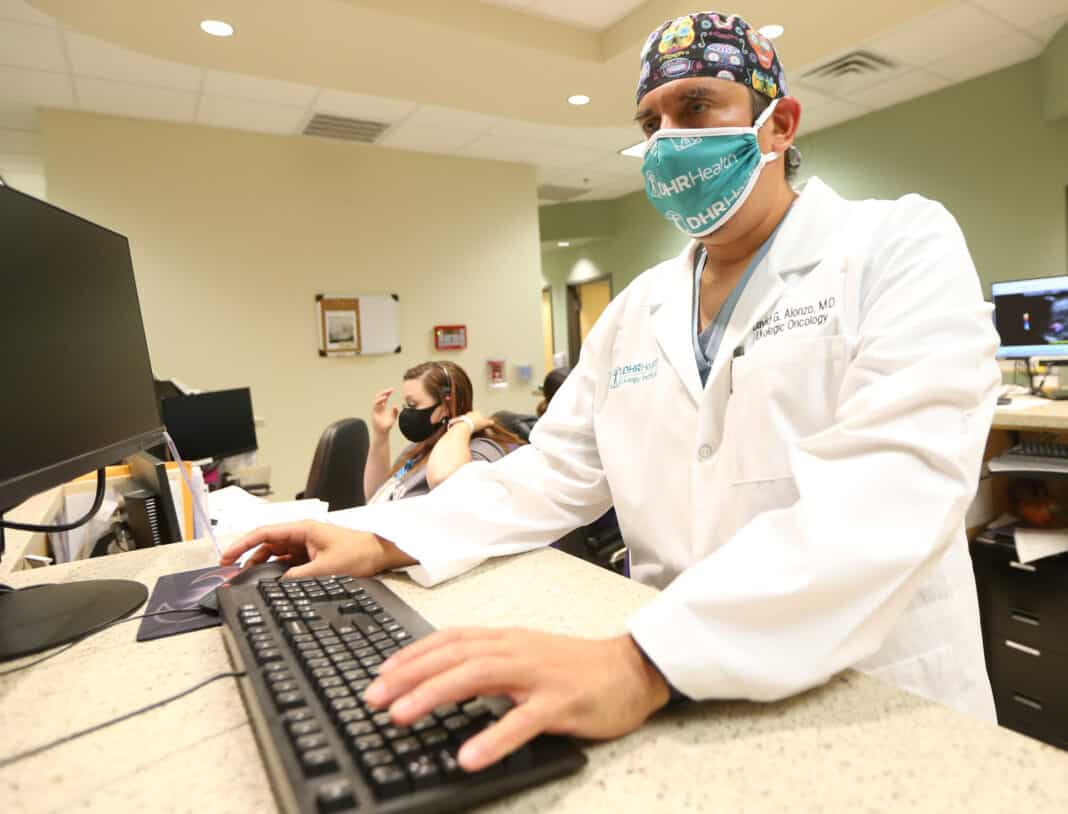After a year of telehealth meetings and video calls, healthcare providers in the Rio Grande Valley urge fathers to prioritize their health this Father’s Day and revisit their primary care physicians.
Due to the pandemic, many found themselves hesitant to seek health care for fear of contracting COVID-19. Health officials also encouraged telehealth services especially when hospitals were overwhelmed with coronavirus patients in 2019.
However, with more and more people getting vaccinated DHR Health and UT Health Rio Grande Valley encourage office visits.
This means bringing dad back in for check-ups.
“Around Father’s Day it’s really a time to reflect on what’s really important, which is adding time to be with your family,” said Dr. Michael Dobbs, vice dean of clinical affairs for the UTRGV School of Medicine and chief medical officer for UT Health RGV. “The best way that I know how to gain more time with your family is to get annual check-ups and try to stay healthy.”
Hispanic men in the Rio Grande Valley are susceptible to more chronic illnesses or “silent killers,” according to Dr. David Alonzo, a urologist at DHR Health.
Alonzo said Hispanic men in particular tend to have higher cholesterol and blood pressure, and higher rates of diabetes and other chronic illnesses, requiring periodic doctor visits.

Alonzo also said there is a lack of participation by minorities to regularly visit a doctor.
Dobbs said that with these silent killers many men don’t realize that their health is deteriorating until they experience a health emergency, such as a heart attack.
“For high blood pressure you might go for years without any problems at all while having damage silently done to your body,” he said.
Other illnesses that can creep up on men are prostate and colon cancers.
According to Alonzo, men should begin getting checked for prostate and colon cancer in their 50s. For men who have a family history of colon or prostate cancer they should begin screenings as early as age 40.
“The word screening is fairly important because screening implies catching diseases early before they start to give you problems,” Dobbs said. “And you can possibly get them taken care of before they advance to save you a lot of trouble and even save your life.”
Both fathers, Alonzo and Dobbs stressed the importance of being around for their children.
Dobbs said after his second daughter was born he realized that he needed to make some lifestyle changes to ensure he was healthy enough to be there for her.
Both doctors urge men to visit their primary care physician regularly and start prioritizing their health.
“We wanna be around for our children, for our families, for as long as possible. Preventative measures, preventative health checks really do increase the chances that you will be alive for as long as you can to see your family grow and prosper,” Alonzo said.




